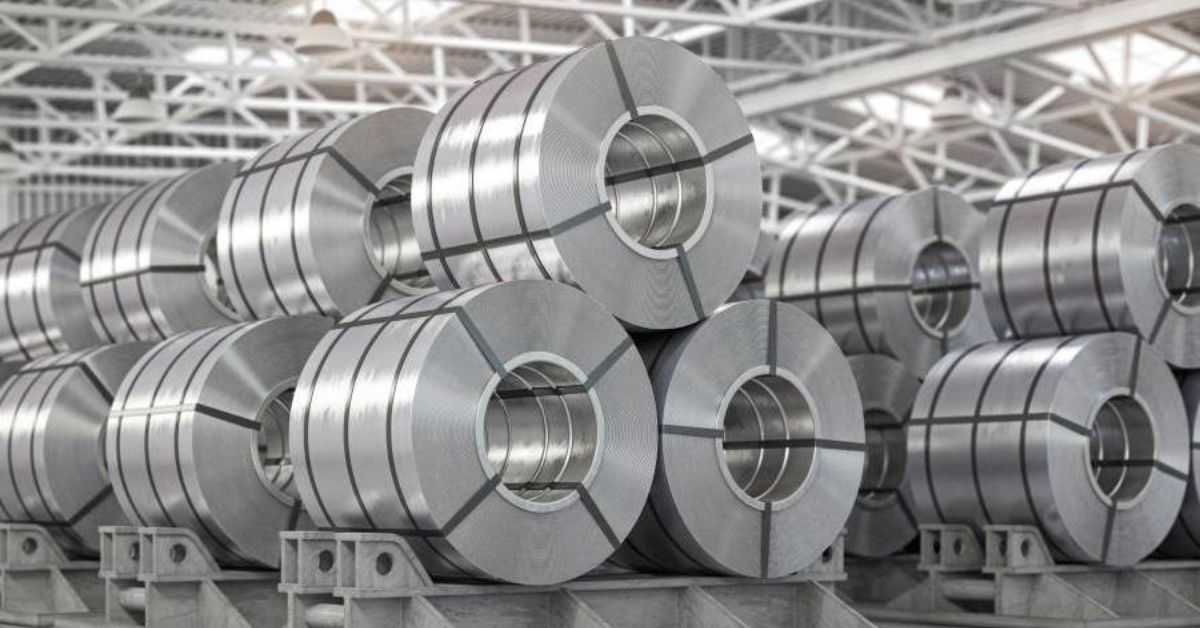Amid fears of dumping into India following steep US duties on Chinese goods, the government has imposed a 12 per cent safeguard duty on non-alloy and alloy steel flat products, a notification from the Ministry of Finance released on Monday showed.
This follows an investigation by the Directorate General of Trade Remedies (DGTR), under the Ministry of Commerce and Industry, which in its findings last month said that there was a “sudden and sharp” surge in imports that could “cause serious injury to the domestic industry”.
“The safeguard duty imposed under this notification shall be effective for a period of two hundred days (unless revoked, superseded or amended earlier) from the date of publication of this notification in the Official Gazette and shall be payable in Indian currency,” the notification stated.
Notably, several specialised steel items have been excluded from the scope of the measure, including Cold Rolled Grain Oriented Electrical Steel (CRGO), tinplate, stainless steel, rubber-coated steel, brass-coated steel, and aluminium-coated steel, among others.
The notification added that the safeguard duty will not apply to product categories priced above the import price on a Cost, Insurance and Freight (CIF) basis—set at $675 per metric tonne (MT) for hot rolled coils, sheets and plates, and $964 per MT for colour-coated coils and sheets, whether or not profiled.
Fearing a further surge, the Ministry of Steel had last year urged the Ministry of Commerce to impose a 25 per cent duty on steel products, citing an 80 per cent increase in steel imports from China—to 1.61 million tonnes between January and July 2024.
In its submission to the Ministry of Commerce and Industry, the Indian Steel Association (ISA) had said that since the United States imposed a 25 per cent duty under Section 232 of its Trade Expansion Act, 1962, several countries have introduced multiple trade remedy measures against steel imports. “The evidence indicates that 129 trade remedy measures were imposed by various countries against steel products between 2019 and 2023,” ISA had said.
The ISA warned that the surge in imports poses a threat to domestic manufacturing, as there is significant overcapacity far exceeding domestic consumption in China, Japan and South Korea. “To mitigate the decline in steel consumption for long products, Chinese steel companies shifted a significant percentage of their production from long to flat products, which are now being exported to global markets,” it said.
The DGTR, in its findings last month, also flagged that major steel-producing economies such as Japan, South Korea and China have capacities far beyond their domestic needs. It warned that this excess capacity could push steel producers in these countries to increase exports—posing a serious threat to Indian industry.







